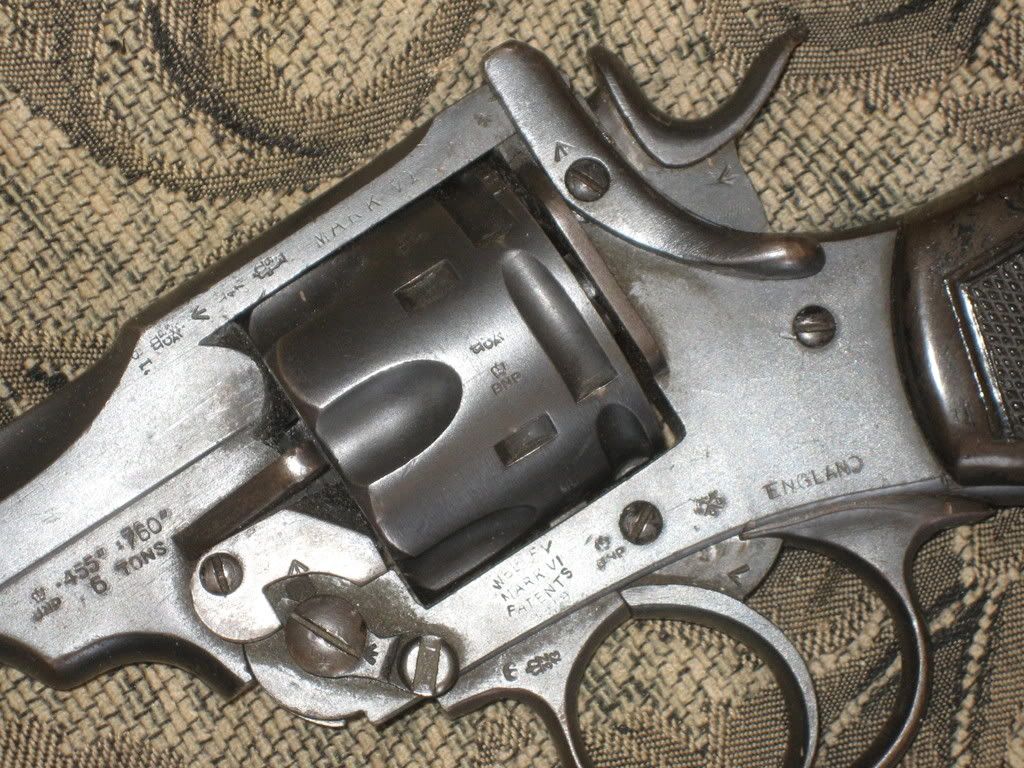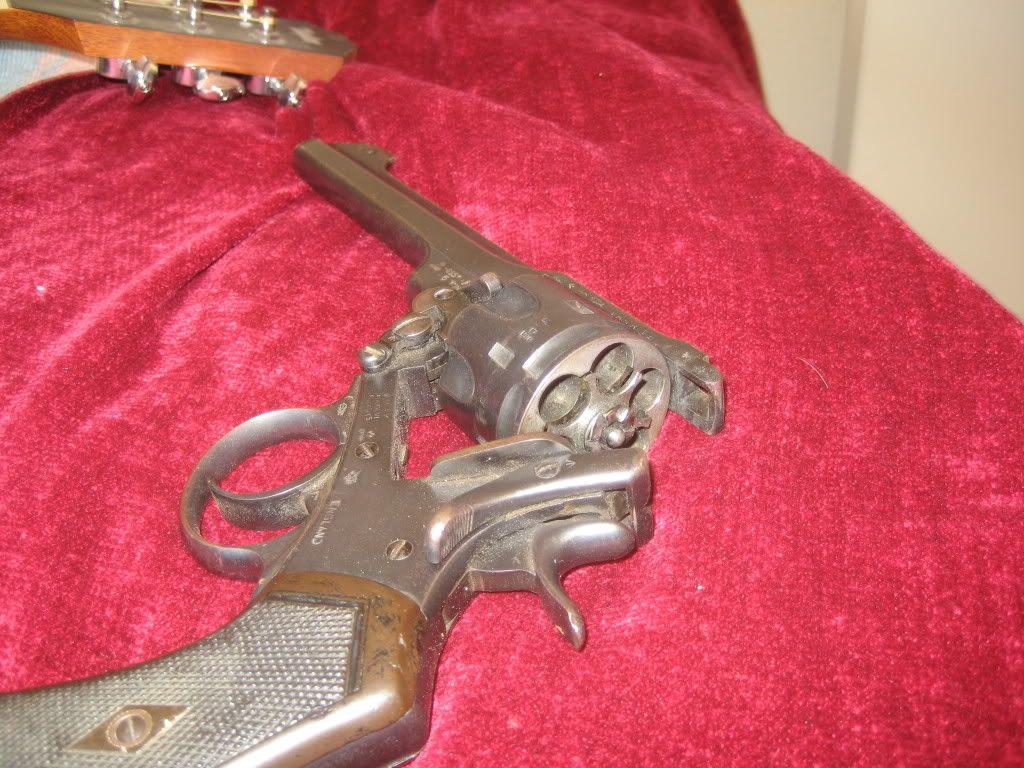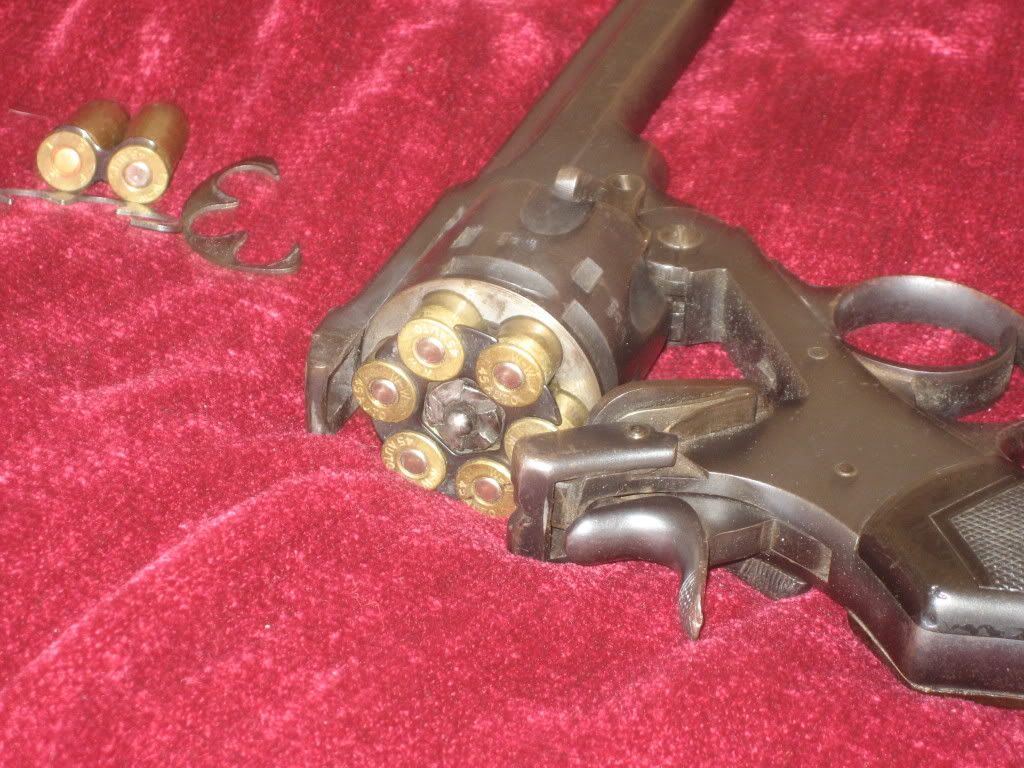Baba Louie
New member
Can someone decipher a few of these stamps... or lead me to a linked site? Please?



Made me laugh out loud, literally. I agree.He had ADHD or some such. This reminded me of that.
As to present caliber, the gun appears to still be in .455 Webley and not converted to use .45 ACP in half moon clips


Right you are Jim. Teddy just PM'd me on that as well. (Thanks Teddy). I've still got 4 coffee cans full of reloads my Dad worked up (or down as it were)... and I do not, have not and will not use store bought factory loads or reloads for newer designs in that old timer.BTW, Baba Louie, read what I wrote earlier about not firing factory .45 ACP ammunition in that gun. The pressure is too high and I know of a couple that had the chambers blown out firing the auto pistol round.
The .455 Revolver is not a very satisfactory field cartridge because of the low velocity and curved trajectory. On the other hand, it has excellent short-range stopping power, being on a par, or perhaps slightly better, than the .45 ACP. It can be improved by handloading and the use of semi-wadcutter hunting type bullets.
Jim Keenan said:Just FWIW, Webley also made an auto pistol in .455 Webley Auto caliber, a round on a par with the .45 ACP (Colt made some Government Model pistols in .455 Webley Auto during WWI).
